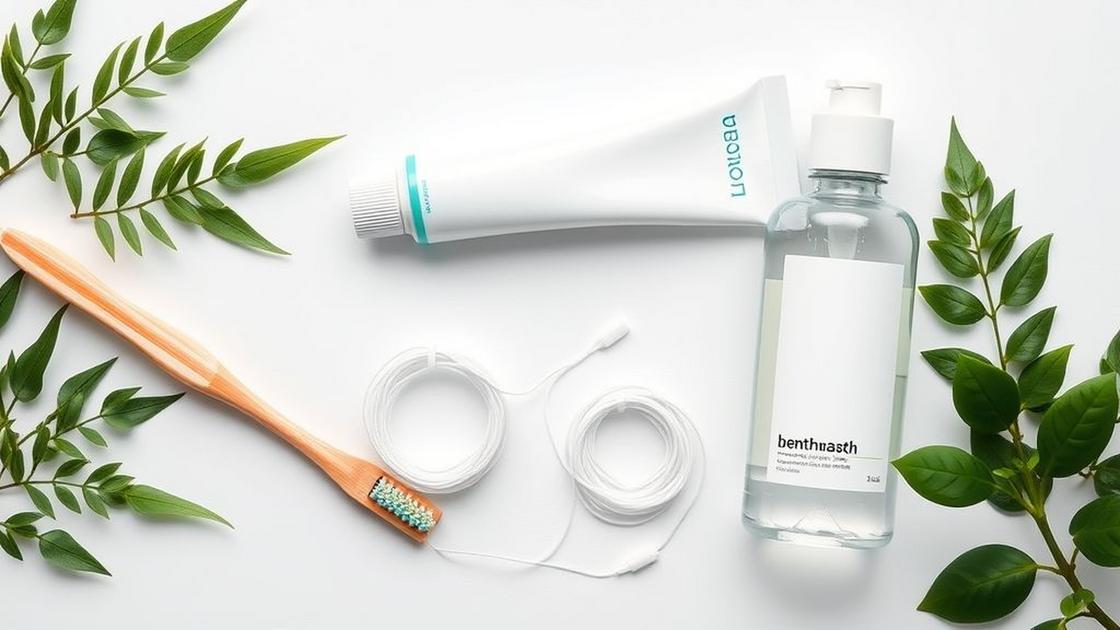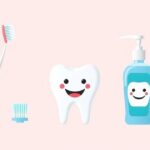As we age, maintaining our dental health becomes more challenging. Every woman knows the struggle with tooth sensitivity, gum health, and the constant search for remedies that actually work. What if I told you that the secret to a radiant smile and healthy gums could be found in the best minerals and vitamins for dental health? In this article, we’ll explore how these essential nutrients can combat common dental problems and restore your confidence in your smile.
The Role of Calcium in Dental Health
Calcium is often referred to as the building block of bones and teeth. It is vital for maintaining strong enamel, the outer protective layer of your teeth. When you consume calcium-rich foods, you help to replenish minerals that can be lost due to daily wear and tear or acidic food consumption.
Many women, especially those over 30, might struggle with calcium levels as hormonal changes occur. Hormonal imbalances can lead to a decrease in bone density and dental health issues. Incorporating calcium into your daily diet can be as simple as enjoying:
- Dairy products: Milk, cheese, and yogurt are excellent sources.
- Green leafy vegetables: Spinach, kale, and collard greens can add calcium without the calories.
- Almonds: A tasty snack that also provides essential nutrients.
Maintaining adequate calcium levels not only protects your teeth but also plays a significant role in preventing osteoporosis, which can lead to tooth loss over time.
Why Vitamin D is Essential for Your Teeth
Vitamin D is crucial for calcium absorption. Without enough vitamin D, your body cannot effectively use calcium, no matter how much you consume. This vitamin helps to maintain healthy bones and teeth by encouraging the absorption of calcium and phosphorus in the gut. For women over 30, ensuring adequate levels of vitamin D can combat the effects of aging on your dental health.
Sources of vitamin D include:
- Sunlight: Just 15 minutes of sunlight exposure can boost your levels.
- Fatty fish: Salmon and mackerel are great options.
- Fortified foods: Many breakfast cereals and milk are fortified with vitamin D.
Additionally, a lack of vitamin D can lead to gum disease, making regular check-ups and a proactive approach to this nutrient essential.
The Impact of Vitamin C on Gum Health
Vitamin C is more than just a boost for your immune system; it’s crucial for maintaining healthy gums. Gingivitis, an early stage of gum disease, can flourish in the absence of this powerful vitamin. Incorporating vitamin C helps to strengthen blood vessels and connective tissues, which support your gums and overall oral health.
Older women may experience gum receding and increased sensitivity, making vitamin C an essential addition to your diet. Consider these vitamin C-rich foods:
- Citrus fruits: Oranges, lemons, and grapefruits.
- Bell peppers: These vibrant vegetables pack a hefty vitamin C punch.
- Broccoli: A versatile vegetable that can be easily added to many dishes.
A daily intake of vitamin C can help prevent gum problems, elevate your mood, and even aid in warding off anxiety—a silent struggle many women face.
Zinc: A Protector Against Oral Infections
Zinc plays a protective role against dental problems, including oral infections and bad breath. It aids in keeping the immune system strong and can help reduce the inflammatory response in your gums, an area particularly sensitive to change as you age.
Including zinc in your diet can help shield you against:
- Gum disease: Ensuring your gums stay healthy.
- Bad breath: Minimizing odor-causing bacteria.
Sources rich in zinc include:
- Shellfish: Oysters are one of the best sources.
- Meat: Beef and poultry provide essential zinc levels.
- Legumes: Beans and lentils are great vegetarian options.
Women often juggle many responsibilities, which can increase their stress levels. By ensuring sufficient zinc intake, you can help minimize the bodily stress and its effects on your dental health.
Magnesium’s Contribution to Strong Teeth
Magnesium not only helps in the formation of teeth but also supports calcium absorption and strengthens bones. Women facing fluctuations in hormones can benefit from magnesium’s calming effects, which can ease tension and promote relaxation.
Foods high in magnesium include:
- Nuts: Almonds and cashews are excellent snacks.
- Whole grains: Brown rice and quinoa.
- Leafy greens: Spinach and Swiss chard.
Adding magnesium to your diet can fortify your teeth while also providing a sense of calm during stressful times.
Omega-3 Fatty Acids for Healthy Gums
Omega-3 fatty acids have been shown to reduce inflammation throughout the body, including in your gums. These healthy fats can play a vital role in oral health by lowering the risk of gingivitis and promoting a balanced inflammatory response.
Sources of omega-3 fatty acids include:
- Fatty fish: Salmon and sardines.
- Chia seeds: Easy to add to smoothies or oatmeal.
- Walnuts: A perfect snack that also helps your heart.
Regular intake of omega-3s can not only promote strong gums but also contribute to improved mood and decreased anxiety levels—a common concern among women managing daily life.
Coenzyme Q10: The Tooth Saver
Coenzyme Q10 (CoQ10) is a powerful antioxidant that supports cellular energy, making it essential for gum health. It can help in reducing inflammation and promoting healthy gum tissue. As women face hormonal changes, maintaining the health of your gums becomes more vital.
Natural sources of CoQ10 include:
- Fatty fish: Another reason to include salmon in your diet.
- Spinach and broccoli: Dark, leafy greens provide a rich source.
- Whole grains: Like oats and barley.
By incorporating CoQ10 into your routine, you can aid your gum health and tackle inflammation, providing one more layer of support during challenging times.
B Vitamins and Their Effect on Oral Health
B vitamins are essential for overall health, including dental health. Vitamins B1, B2, B3, and B12 play roles in cellular repair and maintaining healthy tissues, including the gums. Deficiencies can lead to oral symptoms such as sores and lesions, which can be particularly distressing.
Include B vitamins by consuming:
- Whole grains: Brown rice and oats.
- Poultry: Chicken and turkey.
- Eggs: A great way to start your day.
As you nurture your body with B vitamins, you’ll find improvements not only in your dental health but also in your mood and overall vitality.
The Importance of Phosphorus in Your Diet
Phosphorus works hand-in-hand with calcium to help build strong teeth and bones. It also helps maintain the pH balance in your mouth, preventing harmful bacteria from thriving. For women dealing with hormonal challenges, maintaining sufficient phosphorus is vital.
Sources rich in phosphorus include:
- Meats: Chicken, pork, and beef.
- Dairy: Cheeses and milk are particularly beneficial.
- Nuts and seeds: Sunflower seeds and almonds.
A balanced intake of phosphorus ensures that your teeth remain strong, reducing risk of decay, while also supporting bone health—important for longevity.
Creating a Balanced Diet for Optimal Dental Health
Eating a balanced diet filled with the necessary vitamins and minerals is essential for maintaining dental health, especially for women over 30. The right foods not only support oral health but also help alleviate common issues like anxiety, fatigue, and hormonal imbalances.
Incorporate the following tips:
- Diversify your diet: Include a range of colors on your plate; vibrant fruits and vegetables bring a host of nutrients.
- Stay hydrated: Drinking enough water helps wash away food particles and bacteria.
- Limit sugar intake: High sugar diets can lead to tooth decay.
Remember, the changes you make today can lead to a transformative impact on your dental health and overall well-being. Like many women before you, you can conquer these daily challenges and discover a revitalized version of yourself through simple adjustments in your routine.





